
Article
Featured Articles
Read our latest stories on the people and scientific innovations making a difference in patients’ lives.
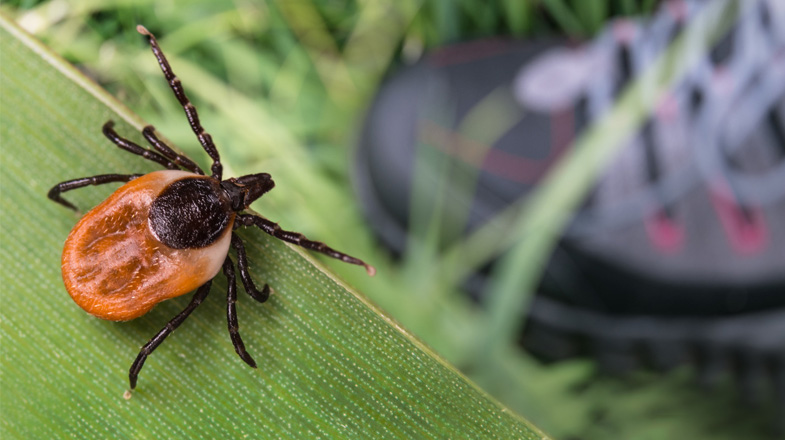
Living & Wellbeing
A Ticklist for Staying Safe While Spending Time Outdoors
Whether you like camping, taking the dog out for a walk, or simply spending time enjoying nature, it’s always good to be aware of how you and your family can help protect yourselves when you’re outside. Depending on where you live and spend your time, mosquitoes can carry diseases such as malaria, West Nile virus, Zika, and yellow fever.1,2 Also high on the watchlist are ticks, which are second only to mosquitoes for spreading disease in humans if infected with bacteria, viruses, or parasites.3...
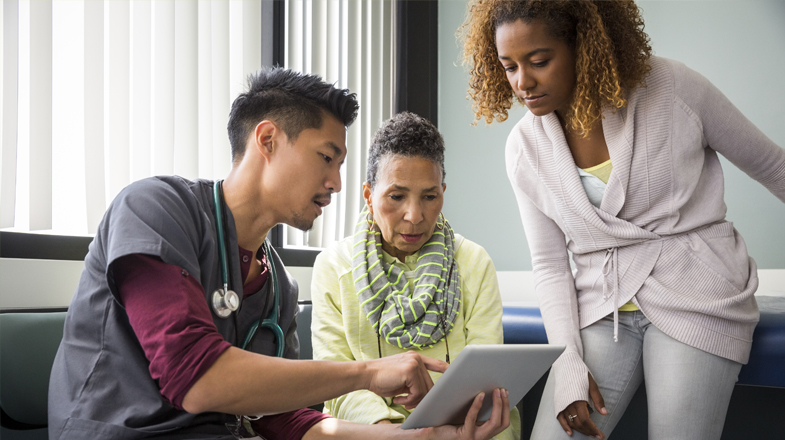
Science & Innovation
What Are Biosimilars and How Do They Expand Treatment Options for Patients?
If you’ve experienced sticker shock in the pharmacy and considered not filling a prescription because of the cost, you’re not alone. Recent data shows that almost 13 million Americans delayed filling a prescription or didn’t fill it at all because of the cost.1 In an era of rising drug prices, getting lower-cost medicines in the hands of more people who need them is critical not only for the pharmaceutical industry, but also, and most importantly, for patients. Biosimilars make cutting-edge...
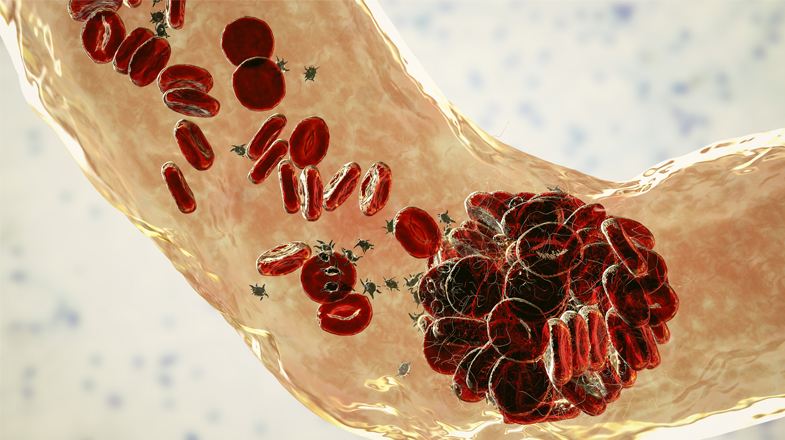
Living & Wellbeing
Are You at Risk for a Blood Clot?
NBC News war correspondent David Bloom was the image of health. In 2003, he was a 39-year-old avid tennis player. His work brought him to Iraq, where he was embedded with the 3rd Infantry Division, advancing toward Bagdad. Ultimately, it wasn’t the war, but a blood clot that killed Bloom, according to a TODAY.com account of his death.1 One night, he went to sleep out under the stars on a tank fender. He called his wife, Melanie, and mentioned that he had leg cramps. The symptom appeared...
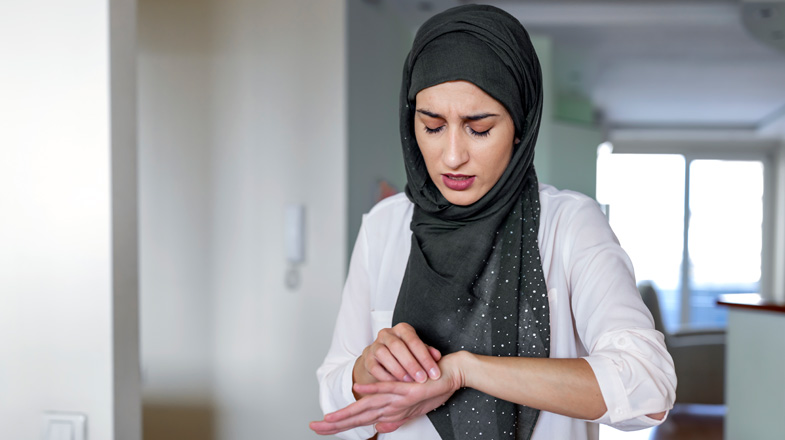
Living & Wellbeing
Eczema vs. Psoriasis: What’s Causing My Itchy Skin?
Getting patches of red and itchy skin that may come and go could have you wondering: Is it eczema or psoriasis, and what’s the difference? Eczema and psoriasis are two distinct skin diseases that may require different treatment plans.1 Although they may be difficult to tell apart, a dermatologist (a doctor who specializes in skin conditions) can spot the differences between these two non-contagious and common skin conditions. That’s why it’s important to speak to your healthcare provider to...
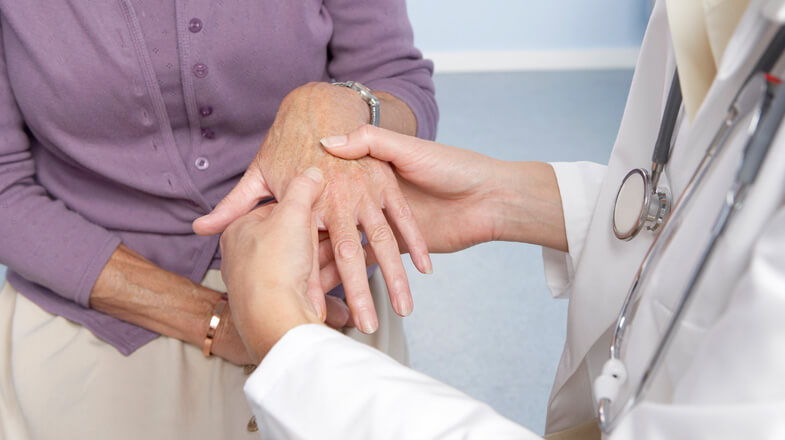
Science & Innovation
Can You Inherit Rheumatoid Arthritis? Genetic vs Hereditary
Inflammation that leads to pain, swelling, stiffness, fatigue, and loss of joint function, are a fact of life for more than one million people in the United States who live with rheumatoid arthritis (RA).1 The chronic autoimmune disease causes the immune system to attack the healthy tissues surrounding the joints; it mainly affects the wrists, hands and knees (and often attacks numerous joints at once).2Is rheumatoid arthritis genetic? In addition to risk factors such as age, sex, smoking and...

Science & Innovation
Biologics vs. Biosimilars: Understanding the Difference
Maybe you’ve heard of biologics and biosimilars. You might even be taking biological or biosimilar medicines to treat cancer, rheumatoid arthritis, ulcerative colitis, psoriasis, or other health conditions. Still, maybe you have questions about what the differences and similarities are or how these drugs are developed. Biologics revolutionized the prevention, treatment, and outlook of many serious diseases. Now, biosimilar advancements in these drugs are helping to provide expanded access to...
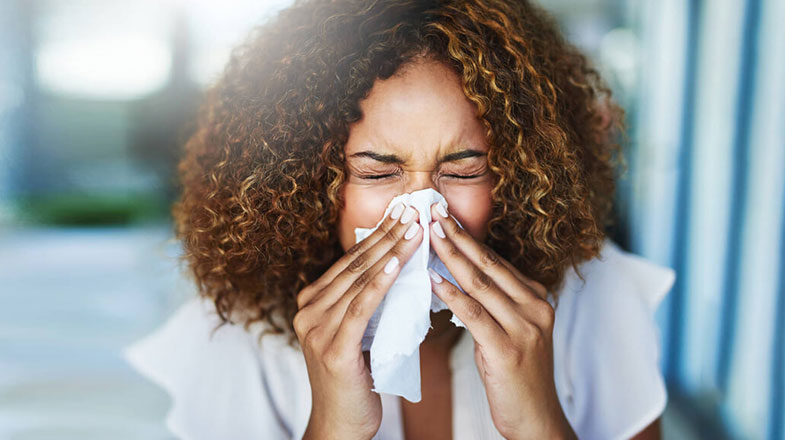
Living & Wellbeing
Feeling Sick? Use this Symptom Checker for Common Fall and Winter Illnesses
As the weather cools, viruses have a tendency to spread with more ease. That’s because people tend to spend more time indoors, where germs can circulate from one person to another through the air or close contact. This fall or winter, if you find yourself sniffling and sneezing, or experiencing an upset stomach, you could have a common virus. We’ve created a symptom checker to help you tell the difference between cold and flu symptoms, COVID-19 symptoms and norovirus symptoms. Read on to...
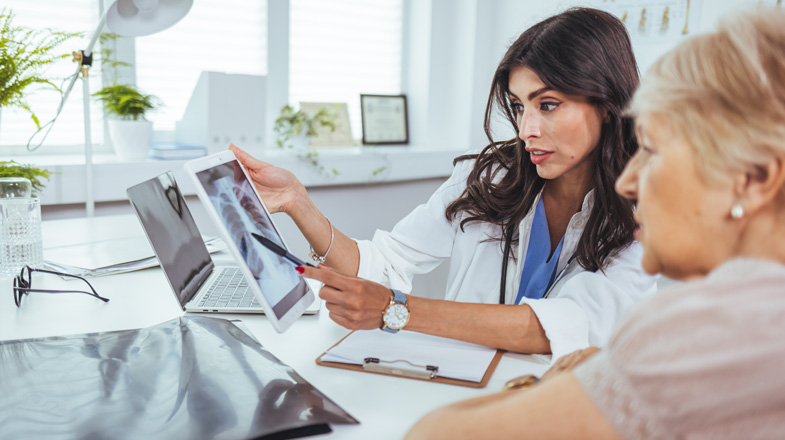
Science & Innovation
Cancer Biomarkers: Paving the Way for Better Lung Cancer Treatment
Receiving a lung cancer diagnosis may inspire a lot of questions: Will my cancer spread? What are the best treatment options for my type of lung cancer? How well do treatments work? There are no one-size-fits-all answers to questions about lung cancer—and that can be a good thing. Scientific advances have led to the practice of “precision medicine” or treatments tailored to patients based on the genes and proteins found in their tumor. In cancer treatment, it involves looking at changes in...
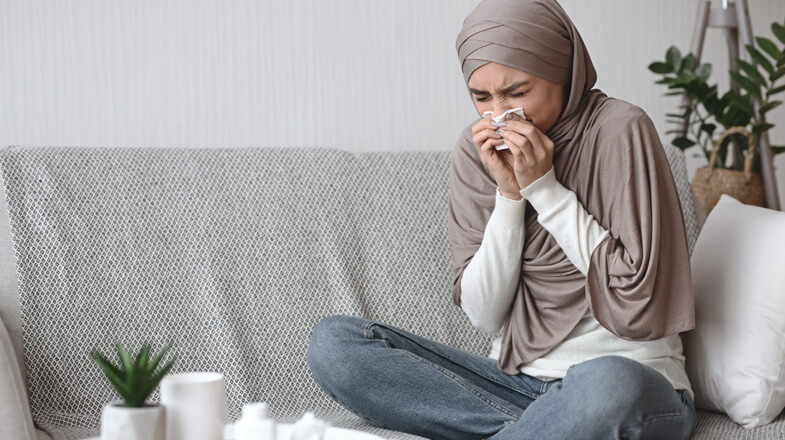
Living & Wellbeing
The Differences Between COVID-19 and the Flu
At the height of the COVID-19 pandemic, the onset of a fever, cough, sore throat, or sniffle may have led to frantic online searches for “Is this COVID-19 or the flu?”Even as the Public Health Emergency for COVID-19 has ended,1 it’s still a good idea to understand the similarities and differences between COVID-19 and influenza (the flu) and how to help protect yourself from getting sick. The information may be especially valuable because as spikes in COVID-19 cases occur, including the...
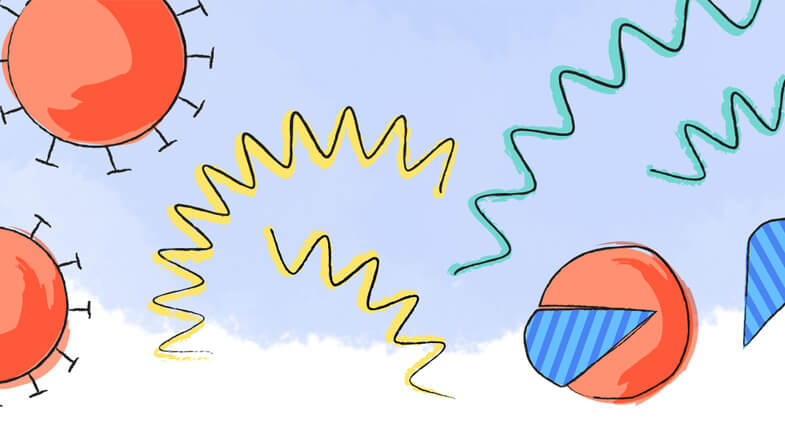
Science & Innovation
How a Coronavirus Protease Inhibitor Works to Fight COVID-19
SARS-CoV-2, the virus that causes COVID-19, was sometimes called the “novel coronavirus” in the early days of the pandemic. The term was fitting because SARS-CoV-2 was new; the world had not previously encountered this virus, though the scientific community was already quite familiar with other coronaviruses, including SARS-CoV-1, the virus that caused the 2003-2004 severe acute respiratory syndrome (SARS) outbreak, MERS-CoV that caused the Middle East respiratory syndrome (MERS) outbreak in...

Science & Innovation
How Vaccines Work: Immune Response and the Body's Reaction
Vaccines can train your body to prevent sicknesses before they even start. They do this by introducing something called an antigen into the body, which imitates an infection and primes the immune system to respond.1 That way, if you encounter certain disease-carrying organisms, known as pathogens,2 in the future, your body already has a plan of attack. “After a vaccination—and once the antigen is recognized as foreign by surrounding cells—it sets a cascade of events in motion that may help...
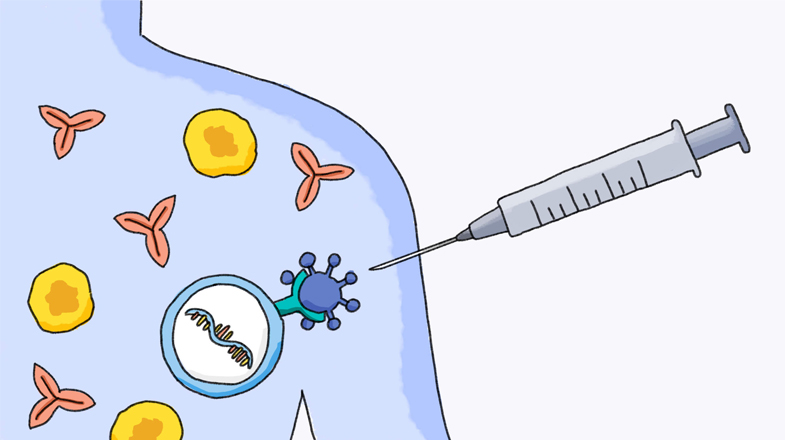
Science & Innovation
What Makes an RNA Vaccine Different From a Conventional Vaccine?
Vaccines are one of the greatest health interventions ever developed. They’ve been cited as being as important to keeping communities healthy as having access to clean water and safe sanitation.1 Through scientific investment and ingenuity, today we have multiple vaccine technology platforms that have helped us control and, in some cases, eradicate many healthcare challenges such as polio, river blindness, smallpox, and COVID-19, just to name a few. In 2020, messenger RNA, or mRNA for...
Media Resources & Contact Information
Anyone may view our press releases, press statements, and press kits. However, to ensure that customers, investors, and others receive the appropriate attention, Pfizer Media Contacts may only respond to calls and emails from professional journalists.